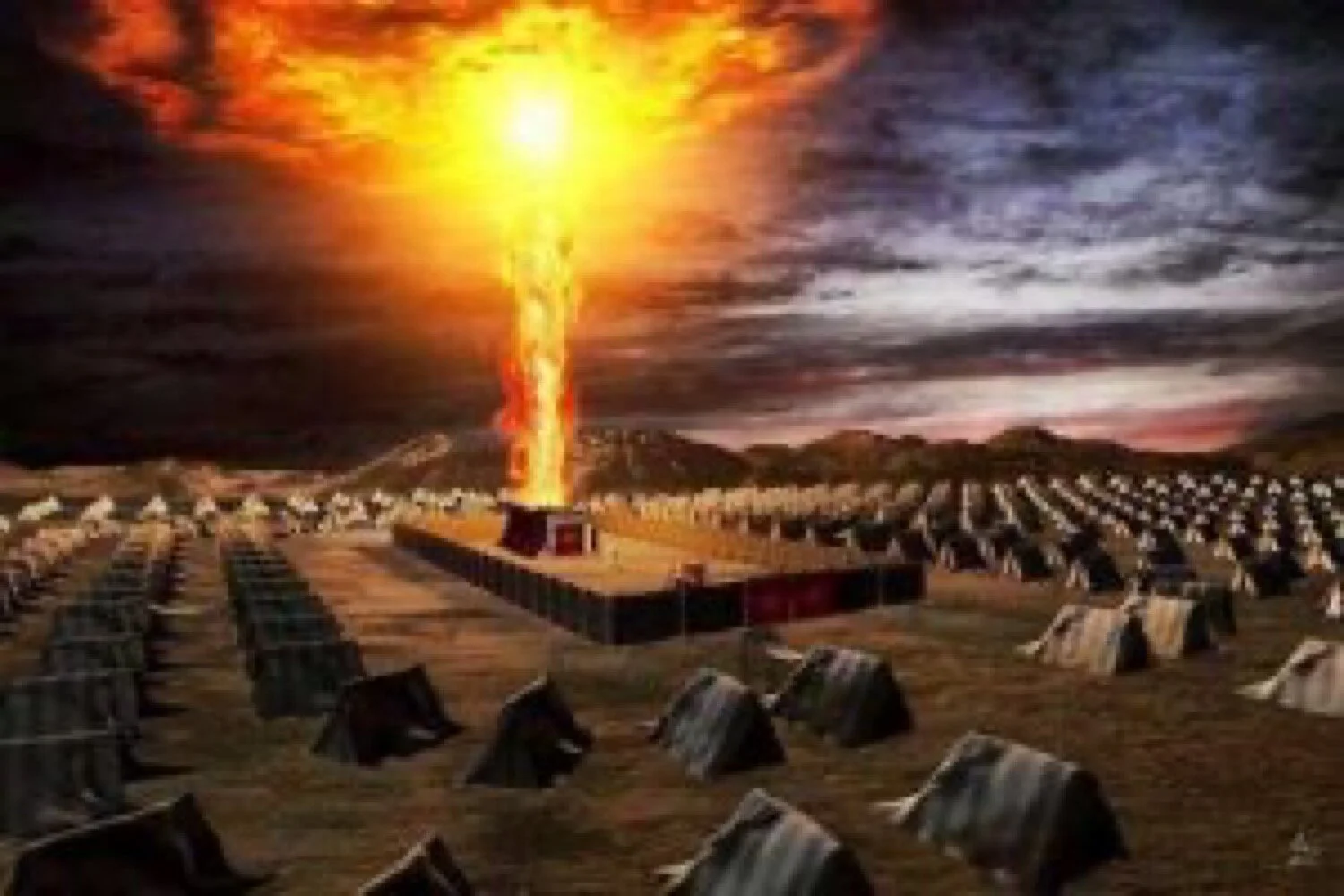Readings for today: Exodus 39-40, Leviticus 1, Matthew 23:23-39
Leviticus. The bane of all Bible reading plans. It describes a world far removed from our own. A world of ritual purity maintained by a never-ending parade of sacrifices. It’s a world of blood and fire and incense and strange worship. It’s a world of intentionality where everything takes on a sacred tone. Food. Dress. Health. Wealth. All of it carefully regulated in order to preserve one’s right relationship before the Lord. It’s a world we frankly do not understand which is why so many of us skim through this book at best. But for those who have the courage and openness to truly enter this world on its terms, there is much to glean about the relationship between God and His chosen people.
First and foremost, I would argue Leviticus - in some sense - really begins at the end of chapter forty of Exodus with the coming of the presence of God into the Tabernacle. “Then the cloud covered the tent of meeting, and the glory of the Lord filled the tabernacle. And Moses was not able to enter the tent of meeting because the cloud settled on it, and the glory of the Lord filled the tabernacle. Throughout all their journeys, whenever the cloud was taken up from over the tabernacle, the people of Israel would set out. But if the cloud was not taken up, then they did not set out till the day that it was taken up. For the cloud of the Lord was on the tabernacle by day, and fire was in it by night, in the sight of all the house of Israel throughout all their journeys.” (Exodus 40:34-38) The people of Israel have dedicated so much time and energy and resources to the construction of this sacred space. They have followed every command to the letter. They have prepared a house for God to dwell in. A tent to carry with them where God Himself will meet with them. And God is pleased. He comes to dwell in the tent of meeting. During the day, He appears as a cloud. A hovering mist for all to see. During the night, He is the fire that burns from within its folds, giving light to the entire camp. Can you imagine it? God being so fully present you can actually see Him? Speak with Him? Consult Him for wisdom? It’s truly incredible and unique in the ancient world.
Second, God’s presence among His people does create a problem. God is pure and holy. Sin cannot survive in His presence. God’s people are impure and unholy. They are sinful and broken. A way must be made for them to approach God without fear of being consumed. So God institutes the sacrificial system. “The Lord called Moses and spoke to him from the tent of meeting, saying, “Speak to the people of Israel and say to them, When any one of you brings an offering to the Lord, you shall bring your offering of livestock from the herd or from the flock. “If his offering is a burnt offering from the herd, he shall offer a male without blemish. He shall bring it to the entrance of the tent of meeting, that he may be accepted before the Lord. He shall lay his hand on the head of the burnt offering, and it shall be accepted for him to make atonement for him.” (Leviticus 1:1-4) Israelites, young and old, can bring an offering to the Lord. They bring an animal without blemish to be sacrificed. They lay their hand on the animal’s head and all their impurities pass onto the sacrifice. Theologically, this process is called “imputation.” God “imputing” their sin to the animal and thus covering or “atoning” for their sin. In fact, the Hebrew word for “atonement” literally means “to cover” and once one’s sins are “covered”, one is able to approach the Lord without fear.
Christians, of course, see Jesus in this text. He is the great sacrifice who takes away the sins of the world. He is the one who made atonement for all humankind. His blood is sufficient to “cover” all our sin. On the cross, God imputed our sin to Christ which is why we can now approach the throne of grace with confidence. But that’s not the end of the miracle. In a beautiful exchange known theologically as “double imputation”, Christ’s righteousness is now imputed to us. Listen to how the Apostle Paul - himself an expert in Levitical law - puts it in 2 Corinthians 5:21, “For our sake God made Him to be sin who knew no sin, so that in Him we might become the righteousness of God.” Jesus is the perfect Lamb of God. Spotless and without blemish. He is the greater sacrifice of God. Able to not only “cover” our sin but also to make us righteous in God’s sight. Because of Him, we are able to draw near to God without fear and instead be embraced in His love.
Readings for tomorrow: Leviticus 2-3, Matthew 24
